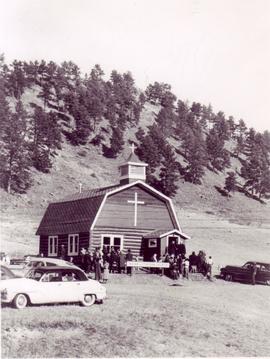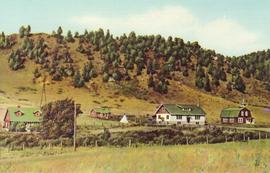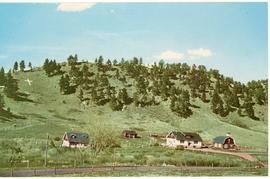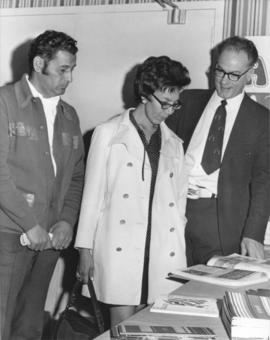Identity elements
Reference code
Name and location of repository
Level of description
Title
Date(s)
Extent
Content and structure elements
Scope and content
This folder includes a bulletin from 1968, various “Tepee Smoke” congregational newsletters 1963-1970, 1976 and 1980, “The Lamplighter” newsletter from March 16, 1967, the story of the church, an insert about the church from a booklet, “A New Approach to Indian Education," bulletin from the 50th anniversary of the church in Rocky Boy Reservation, “Three Messages on the Indigenous Church Among the Indians," a copy of a newspaper clipping about Malcolm Mitchell, the 23rd Psalm in “Indian Style," various newspaper clippings, and the "Story of Yellowbird" document.
System of arrangement
Conditions of access and use elements
Conditions governing access
Physical access
Technical access
Conditions governing reproduction
Languages of the material
Scripts of the material
Language and script notes
Finding aids
Acquisition and appraisal elements
Custodial history
Immediate source of acquisition
Appraisal, destruction and scheduling information
Accruals
Related materials elements
Existence and location of originals
Existence and location of copies
Related archival materials
Related descriptions
Notes element
General note
A non-denominational Christian Mission was established on the Rocky Boy Reservation in 1920 by the national Indian Mission Association. A log chapel and parsonage were built in the summer of 1921. Malcolm Mitchell (Yellowbird) was the mission’s first convert and served as interpreter during services until his death in 1976. As the ministry grew, many of the people expressed a desire to become a congregation, and this resulted in the formal organization of Our Saviour’s on May 4, 1958. The congregation sponsored a sewing club, a beadwork business, youth groups, and an active Lutheran women’s group.




